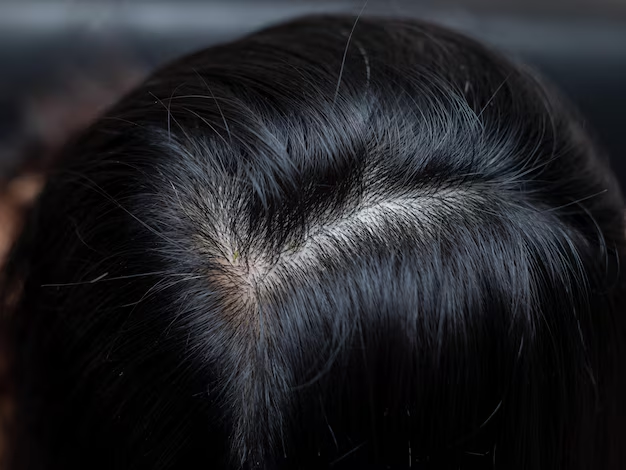Understanding Scalp Psoriasis: A Comprehensive Guide
Have you ever noticed an irritating, dry, or flaky patch on your scalp and wondered what it could be? While many might brush it off as dandruff, it could potentially be a more complex condition known as scalp psoriasis. Recognizing and distinguishing what scalp psoriasis looks like is crucial for managing it effectively.
What Is Scalp Psoriasis?
To understand what scalp psoriasis looks like, it's important to know what psoriasis is. Psoriasis is an autoimmune condition that speeds up the growth cycle of skin cells. Among various types of psoriasis, scalp psoriasis specifically impacts the scalp, leading to itching, redness, and scale formation.
Characteristics of Scalp Psoriasis
Scalp psoriasis can vary in appearance and severity among individuals. Here are some common features:
- Red Patches: You might notice inflamed, red patches on your scalp.
- Silvery-white Scales: These are thick, crusted patches often described as having a silver scale.
- Dryness and Itching: Constant scalp itching is a prevalent symptom.
- Temporary Hair Loss: Excessive scratching or the condition itself can lead to hair thinning or loss.
Differentiating Scalp Psoriasis from Other Scalp Conditions
When assessing scalp disorders, it's easy to misinterpret what you see. So, how do you differentiate scalp psoriasis from other possibilities?
Dandruff vs. Scalp Psoriasis
Dandruff, characterized by smaller, white flakes and mild itchiness, is often confused with psoriasis. While dandruff is typically less severe, psoriasis plaques are thicker, and scaling is more pronounced.
Seborrheic Dermatitis vs. Scalp Psoriasis
Both conditions can look similar since they affect the scalp. However, seborrheic dermatitis often features greasy, yellowish scales, and less redness compared to psoriasis.
Causes and Triggers of Scalp Psoriasis
Understanding what triggers scalp psoriasis can help sufferers manage or avoid flare-ups. Common factors include:
- Stress: Emotional stress can trigger or exacerbate symptoms.
- Infections: Certain infections, such as strep throat, can provoke a flare-up.
- Weather Changes: Cold, dry weather might worsen psoriasis.
- Medications: Certain medications, like lithium, can aggravate symptoms.
How Is Scalp Psoriasis Diagnosed?
Visual examination by a healthcare provider is often sufficient for diagnosis. In some cases, a biopsy may be required to rule out other skin conditions.
Effective Management Strategies
While scalp psoriasis can be persistent, a variety of approaches can help manage symptoms:
1. Topical Treatments
- Corticosteroids: Available in forms such as creams, lotions, and shampoos.
- Salicylic Acid: Helps in reducing scales and softening plaques.
2. Phototherapy
- UV Light: Natural or artificial ultraviolet light can be beneficial.
3. Lifestyle Adjustments
- A balanced diet, stress reduction techniques, and the use of gentle hair products can help mitigate symptoms.
4. Natural Remedies
- Some opt for natural oils or solutions like aloe vera, tea tree oil, or apple cider vinegar for mild symptom relief.
Challenges of Living with Scalp Psoriasis
While the physical manifestations are evident, the emotional toll of scalp psoriasis is significant:
- Self-esteem Issues: Visible patches might lead to discomfort in social situations.
- Persistent Discomfort: Constant itching and scaling can affect daily life quality.
Myth Busting: Common Misconceptions about Scalp Psoriasis
Scalp psoriasis comes with its share of myths. Here are some to set the record straight:
- It's Contagious: Completely false. It's an autoimmune condition, not a contagious disease.
- Only Affects the Scalp: Psoriasis can affect other body parts.
- Lack of Hygiene: Having scalp psoriasis is not due to poor cleanliness.
Finding Support and Community
Living with an ongoing condition like scalp psoriasis is challenging. Thus, finding support through online forums, support groups, or counseling can be incredibly beneficial for emotional and psychological well-being.
Wrapping Up
While scalp psoriasis can be intimidating given its symptoms and potentially aesthetic concerns, understanding it thoroughly helps in managing the condition effectively. By recognizing symptom triggers and choosing an appropriate management plan, individuals can lead a confident and comfortable life.
Quick Summary 💡
- Scalp Psoriasis Identification: Red, inflamed patches with silvery-white scales.
- Key Triggers: Stress, infections, weather changes, and certain medications.
- Differentiation: Unlike dandruff, psoriasis patches are thicker with more pronounced scaling.
- Management Strategies:
- Topical treatments like corticosteroids.
- Phototherapy using UV light.
- Natural remedies, like aloe vera.
- Challenges: Emotional distress and persistent discomfort.
- Common Myths: It is not contagious and isn't a sign of poor hygiene.
- Community Support: Engaging in support groups or counseling for mental and emotional health.
With knowledge and proactive management, those affected by scalp psoriasis can effectively address their symptoms and maintain their quality of life. 🌱👩⚕️

